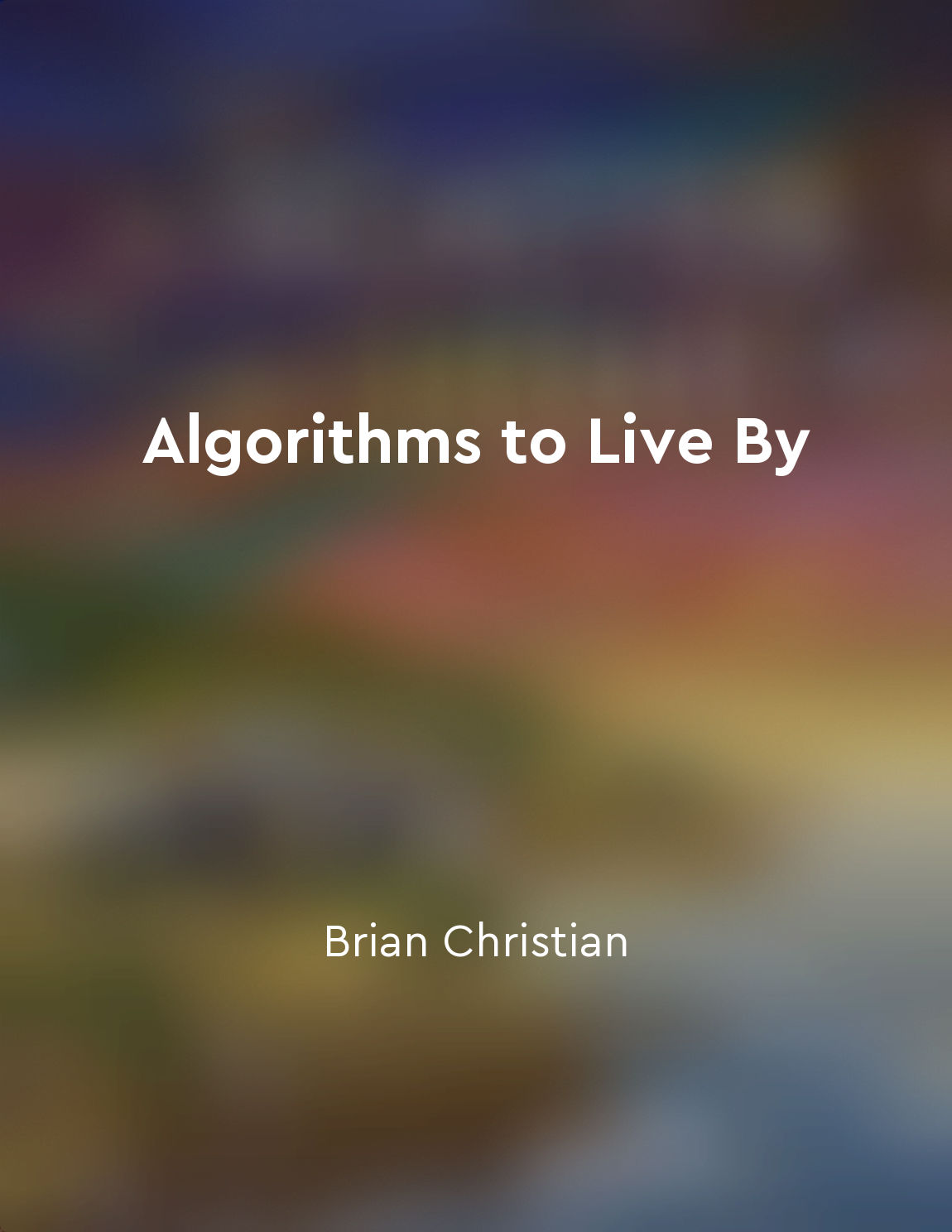The "Bayes' Rule" teaches us how to update our beliefs based on new evidence from "summary" of Algorithms to Live By by Brian Christian,Tom Griffiths
Bayes' Rule is a fundamental concept that allows us to update our beliefs based on new evidence. It provides a systematic way to incorporate new information into our existing knowledge, helping us make better decisions in an uncertain world. At its core, Bayes' Rule is a mathematical formula that describes how our beliefs should change in the face of new evidence. It tells us how to update the probability of a hypothesis given new data, taking into account both the prior probability of the hypothesis and the likelihood of the new evidence under each possible hypothesis. By applying Bayes' Rule, we can move beyond our initial assumptions and adjust our beliefs in a rational and objective manner. This process of updating our beliefs is essential for making informed decisions and navigating complex problems where uncertainty is present. One key aspect of Bayes' Rule is the idea of balancing prior beliefs with new evidence. It reminds us to strike a balance between sticking to our existing beliefs and being open to updating them based on new information. This flexibility is crucial for adapting to changing circumstances and avoiding cognitive biases that may cloud our judgment.- Bayes' Rule serves as a guide for rational thinking in the face of uncertainty. It encourages us to be open-minded, willing to revise our beliefs in light of new evidence, and constantly seeking to improve our understanding of the world around us. By embracing the principles of Bayes' Rule, we can make more accurate predictions, better decisions, and ultimately lead more informed and fulfilling lives.


